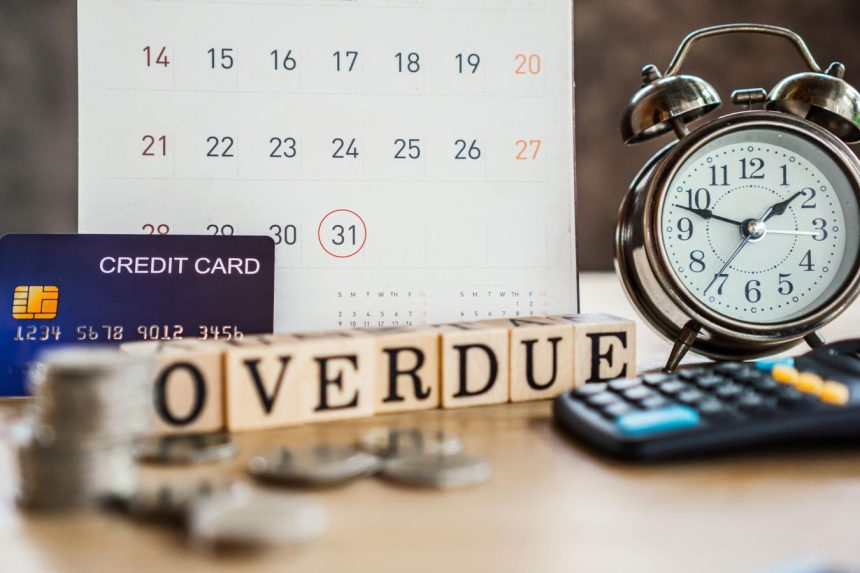An $8 Credit Card Late Fee Cap Sounds Good Now, But It May Hurt You Later
A new $8 cap on credit card late fees is touted as helping more than 45 million credit card holders save an average of $220 annually, but will it really? Reviews are mixed for the CFPB latest move to kill “junk fees.” The average credit card late fee has ballooned to $32 in 2022 from $23 at the end of 2010, the CFPB said. With the cap going into effect, the agency estimates Americans will save more than $10 billion a year. But some financial experts warn the savings and benefits may not last. [USA Today]
Majority of Americans Made Sacrifices to Cover Monthly Bills Last Year
Most Americans found themselves forced to make trade-offs in order to make ends meet last year, with a majority reporting they had to take measures in at least one instance to cover monthly bills in 2023. A new study found 66% of U.S. adults confirmed in a December survey that they had made sacrifices to pay their expenses during the previous 12 months. The most common way Americans covered their bills when they were short on funds was to borrow money or turn to credit cards (41%). Unsurprisingly, lower-income households were hardest-hit, and those making less than $75,000 were more likely to borrow funds for expenses, with 47% saying they needed to do so last year. [Fox Business]
Here’s Why Capital One Is Buying Discover in the Biggest Proposed Merger of 2024
Capital One’s recently announced $35.3 billion acquisition of Discover Financial is a bid to protect itself against a rising tide of fintech and regulatory threats. The deal, if approved, enables Capital One to leapfrog JPMorgan as the biggest credit card company by loans, and solidifies its position as the third largest by purchase volume. But it’s Discover’s payments network—the “rails” that shuffle digital dollars between consumers and merchants, collecting tolls along the way—that is key to understanding this deal. [CNBC]
American Express Card Data Exposed in Third-Party Breach
American Express has told an undisclosed number of cardholders that their account information may have been breached in a recent hacking of a merchant processor. Current and previously issued American Express Card account numbers, expiration dates and customer names may have been compromised, AmEx stated in a notice filed last week with Massachusetts regulators. AmEx said it’s actively monitoring the potentially impacted accounts for fraud, and stressed customers are not liable for fraudulent charges. [CBS News]
Buy Now Pay Later Now Used by One in Five Shoppers
One in five shoppers have now used Buy Now, Pay Later services like Klarna, Affirm and others that let people pay for purchases in installments over weeks. That’s according to the Federal Reserve Bank of New York, which is studying how people use this relatively new option. Because these companies share little information with credit bureaus, there’s a lot we don’t know about how risky or beneficial their services are proving for people. Overall, shoppers are increasingly using Buy Now, Pay Later like they might a credit card, frequently and on everything. [NPR]
Bitcoin Hit a New Record High Tuesday. Why Is Cryptocurrency Going Up?
Bitcoin jumped to a record high on Tuesday, the latest surge in the roller-coaster journey of the world’s largest digital currency. The price briefly crossed $69,000. Bitcoin’s price has risen dramatically over the past year, fueled by regulatory approval for exchange-traded funds in the digital currency. For years, everyday investors who wanted to trade digital currencies generally had to go to crypto exchanges, a potential deal-breaker for people unfamiliar with bitcoin. That changed in January when federal regulators voted that ordinary American investors can buy and sell spot bitcoin ETFs in the same way they trade stocks. The move opened up bitcoin investing to a larger swath of the American public, including potential investors who never quite understood what bitcoin is or how it works, let alone how to buy and sell it. Trading began in earnest. [USA Today]
Fraudsters Are Targeting Younger Consumers
The younger generation is more likely to be targeted and fall victim to fraud or scams than their older counterparts, according to TD Bank. The report revealed that 41% of consumers aged between 13 and 34 have been targeted by fraudsters through social media and nearly a third have fallen victim to financial fraud. Concerningly, an even higher percentage (43%) of young adults reported they would be too embarrassed to tell anyone if they were a victim of fraud or scam. Therefore, an alarming number of incidents are likely never reported. [Banking Exchange]
Zelle Volume Heads Towards $1 Trillion, As Banks’ Cash App Spreads to Small Business Payments
Bank customers used Zelle to transfer $806 billion in 2.9 billion payments last year, up 28% in both dollar value and transaction volume from 2022, as use of the payment app by small businesses spread. Zelle was launched by the big banks in 2017 to compete with peer-to-peer payment services such as PayPal’s Venmo and Block’s CashApp and now allow payments between 2,100 banks and credit unions covering more than 80% of U.S. deposit accounts. It is operated by Early Warning Services, a fintech co-owned by JPMorgan Chase (the nation’s largest bank), Bank of America, Capital One, PNC Bank, Truist, U.S. Bank and Wells Fargo. Early Warning Services charges its thousands of financial institution partners a small fee for each Zelle transaction. In 2023 there were nearly 3 billion Zelle transactions. [Forbes]
Mapping Credit Card Delinquency Rates in the U.S. by State
No state had credit delinquency rates of less than 10%, with Iowa coming the closest at 12.9%. That puts Iowa ahead of wealthier states like Massachusetts (13.9%), Washington (14.7%), and New Hampshire (15.5%). At the bottom end was Mississippi, which had 39% credit delinquency rates to end 2023. That’s well ahead of the next-lowest states Louisiana (31.7%) and Alabama (30.5%). It’s notable that the American South had higher rates of delinquency almost across the board. The five states with the highest rates of credit card delinquency are all located in the southeastern region of the country. [Visual Capitalist]
The Youths Have Spoken: Wallets Are Uncool. Go Digital
In a survey asking just over 2,500 Americans about digital payments, some 80% of Gen Z respondents said they were using mobile wallets, and among them, half were eager to use their phones for much more than paying for things. Younger people are increasingly using their phones for purposes that older adults would use a traditional wallet for, like carrying documents such as a driver’s license, boarding passes and event tickets. Some of these digital items can be added into the Apple and Google wallet apps, while others, like insurance cards, can be downloaded through third-party apps. The shift in behavior is a reflection of how far mobile wallets have come. [The New York Times]
Wells Fargo Announces a New Travel Rewards Card, the Autograph Journey
Wells Fargo is making a splash in the credit card space with the announcement of a brand new travel rewards card to go along with a revamped rewards program. The Autograph Journey card doesn’t mess around when it comes to earning points: 5X points on hotels; 4X points on airlines; 3X points on other travel; 3X points on dining: 1X points on all other purchases. Another way to quickly rack up points is through the card’s intro bonus, which is worth 60,000 points after spending $4,000 on the card in the first three months. The Autograph Journey card has a $95 annual fee, which is partially offset by a $50 annual airline credit, which you can earn each account anniversary year. [CNBC]
Uber and Mastercard Launch Pro Card for Canadian Gig Workers
Uber is now offering its Pro Card to its Canadian drivers and delivery workers. The card, developed in collaboration with Mastercard and gig worker-centric FinTech Payfare, gives workers free instant payouts after every trip or delivery. The card, which offers rewards to help save on things like gas and electric vehicle charging, comes amid a wave of new financial offerings aimed at gig workers. The Uber Pro Card will be available through mobile wallets and allows seamless contactless payments, so drivers and delivery people can begin spending right away, while tracking rewards, earnings and savings via the Uber Pro Card app. [PYMNTS]
Read the full article here
















